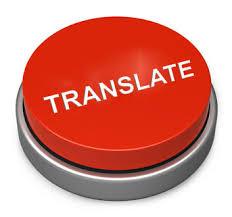Arabic Translation Services - Challenges
It goes without saying that translation from Arabic into English has encountered a whole gamut of serious challenges in modern times.
This article looks at these challenges in greater depth, in an attempt to shed more light on such hurdles.
Literality
One of the most common and serious problems facing Arabic to English translation is literality.
It is hardly the case nowadays to see any text translated from Arabic to English without being either wholly or partially literally translated.
Literality is affecting translations in almost all fields, from public relations, marketing, politics, business to even law and government.
Why does it exist?
Rich, flowery, proverbial language: Arabic is a very rich language, with a myriad of expressions and combinations that can sometimes have very dense metaphor and subtle meaning.
Many Arab writers love, or in an attempt to boast skill, to write in a flowery and metaphorical language, using a consistent flow of proverbs while writing.
This poses a serious challenge to translators, especially if the translator - who is undertaking the task of rendering the text from Arabic into English – is not experienced enough to handle such a text.
It is very often the case that inexperienced or under-experienced Arabic translators get confused and would opt for a word-for-word translation without giving any thought to whether the translated expression or idiom would mean anything to the target audience, i.e the native English speaker.
Amateurism
Connected to this point is the second significant challenge facing Arabic translation into English: amateurism or incompetence.
Amateur or incompetent Arabic translators are widely recognised as one of the most common and serious problems in modern times.
Not everyone who calls themselves a translator of Arabic to English is actually a competent or qualified translator.
The profession has witnessed a large-scale invasion by so-called translators, who are in reality only amateurs who have neither been tried and tested nor had received translation-specific training or developed expertise in Arabic to English translation.
Why do we have amateur Arabic translators?
The countless number of incompetent and amateur Arabic translators out there is attributable to a variety of factors, some of which include:
Cheap Arabic translation: Many businesses or individuals give priority to cost over quality, the natural consequence of which is entrusting low-paid so-called translators to undertake the task of translating their documents or papers from Arabic into English. This has encouraged the arrival of more and more incompetent Arabic translators into the field.
Cheapness brings cheapness: To cater to this category of businesses and individuals, which are more focused on cost than quality, Arabic translation services providers hunt for cheap labour, i.e low-paid translators, in order to minimise financial loss and also to make their clients – who are after inexpensive Arabic translation services – happy.
Indeed, some who claim to be translators offer to translate a text from Arabic into English at the cost of $10 per 1,000 words!!!!
Lack of targeted training: One of the reasons we do have many translators who lack the required competence and expertise is the lack of right and targeted training.
If you look into the history of the majority of so-called translators (in reality amateurs), you will most likely find that they had not received any targeted and specific training.
It is often the case that anyone who graduates with an English language degree in any Arab country, even if they studied English literature, would – right after graduation – seek a career in Arabic translation without receiving any further essential translation training. Indeed, some might be lucky enough and have some savings and head straight into the market, opening an office to provide Arabic translation services.
Underestimation in education
Again, this very point is inherently linked to the third challenge facing Arabic translation into English: underestimation in education.
Across the Arab world there are universities and colleges offering English language degrees, but even those with a bit of focus on translation do not, more or less, offer an in-depth level of understanding of the whole range of niceties and nuances involved in the translation of an Arabic-language text into the English language.
On top of that, it is hardly the case that any of these programmes or courses or even higher education studies would give the learner a good grounding in the English language.
To be able to translate a text accurately from Arabic into English, the translator has to have an extensive knowledge of the English language to which he is rendering the text, otherwise he or she will basically feel helpless when faced with a difficult wording or text.
Insufficient experience and exposure
The fourth challenge that Arabic translation is encountering is lack of specific experience. Translation is a unique and specific skill that one develops over time by being consistently exposed to, or having to handle, texts that vary in theme, topic, field, complexity, length etc.
To translate a text from Arabic into English professionally, a certain amount of field-focused expertise is required, expertise that would take into account that word-for-word translation is nothing but a useless rendition of an original text.
The required expertise is the one that takes into account that Arabic and English are two different languages which represent two different cultures and, hence, words and expressions may need to be translated sensitively with cultural awareness to be rendered correctly into the target language.
Summer is a season that Europeans receive with happiness, but it is not necessarily received with the same happiness in many Arab countries where temperature soars to over 50 degrees.
So, in a text where summer is used to describe the feeling of happiness, the translator may not be experienced enough and may not have that cultural sensitiveness, thus ending up rendering an incorrect translation.

